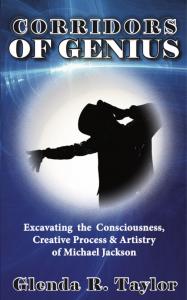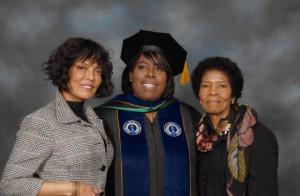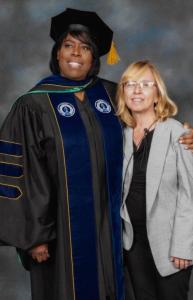Michael Jackson on his Sixty-Third Birthday - An Appreciation
Despite events that tarnished Jackson’s reputation in the last of his forty-year career, his birthday is an opportunity to re-examine his life and artistry.
Michael Jackson was a complicated individual whose public image was a mirage. I came to appreciate the cultivated mind of this man who was foremost a socially conscious artist and global citizen.”
BROOKLYN, NEW YORK, USA, September 7, 2021 /EINPresswire.com/ -- The social activist, creative genius, and entertainer extraordinaire that was Michael Joseph Jackson would have celebrated his 63rd birthday on August 29, 2021. Despite the events that tarnished Jackson’s reputation in the last decade of his forty-year career, this birthday presents an opportunity to re-examine his life and artistry. While by no means dismissing the allegations made against him, it is time to take a nuanced and appreciative look at Michael Jackson, the man and the artist. — Dr. Glenda R. Taylor
My doctoral research is the only academic examination of the consciousness, creative process, and artistry of the Gary, Indiana-born child who became an international megastar. Having studied Jackson in minutia, there are many things that have been overlooked or summarily dismissed. This is a disservice to American history and culture and Jackson’s legacy.
Michael Joseph Jackson was an entertainer and social activist in the tradition of Paul Robeson, Nina Simone, and Marvin Gaye. He was intrigued by an artist’s power to use his art forms to affect change and place a light on social issues. He understood how in a visual culture technology could be utilized to create short films with signs, symbols and metaphors that communicate universal truths and Dr. Martin Luther King’s call for a Beloved Community.
“Earth Song”, “They Don’t Care About Us”, “Heal the World”, and “Black or White” are a few of Jackson’s short films which are imbedded with multiple messages and reveal his evolving, socially conscious, artistic voice. These works postulate that the time has come for each individual to look into the mirror and understand that he is a part of the solution in a global community.
Once the Jacksons moved to California, young Michael was friends with the most socially active luminaries of the day including Coretta Scott King, Reverend Jesse Jackson, Muhammad Ali, and Dick Gregory. He was also friends with entertainers who were social activists, including James Brown, Dionne Warwick, Elizabeth Taylor, Marlon Brando, and Quincy Jones. These relationships had an impact on his artistic voice. Few of his most ardent fans realize how deeply Dr. Martin Luther King Jr’s doctrines are embedded into Jackson‘s works.
Jackson perceived his songs, his music, his short films and his concert and televised performances as a “medium” through which he could minister his ideas of love and the individual’s ability to make a difference. Jackson was eleven when “I Want You Back” catapulted the Jackson Five to international fame. This was during the 1960s and 1970s Civil Rights and Black Arts Movements, one of the most socially tumultuous times in American history. Yet Michael Jackson and his brothers were not allowed to address social issues in their work; not only did his religion, the Jehovah’s Witnesses, prohibit engagement in political activities, his record company, Motown, discouraged Michael and his siblings from publicly expressing their views about the political events of the day for fear it could affect record sales – or their safety.
Motown’s position was not unfounded. As Quincy Jones writes in “Q,” his autobiography, “Black artists have always been forced to walk the thin line between what is politically acceptable for them to say and what is not.” Jones, among the luminaries who walked behind Dr. King’s coffin during his funeral procession, received death threats for his Civil Rights activism, and The White Citizens Council, one of the white supremacist organizations of the day, called his children “mongrels” in its national newsletter. Jackson knew the stories, and he wanted to make a difference.
Jackson not only wrote songs about social issues, he took action. His sister Janet reports he loved to buy meals from his favorite restaurants and drive around passing them out to the homeless. His bodyguards disclose not long before his death, he drove through neighborhoods in Nevada and passed out money to women with meager resources. His social activism included contributing money to the 1995 Million Man March. Nelson Mandela, who said Jackson was like a grandson, worked with him to develop charitable projects. He sought ways to gain an understanding of diversity and attended a synagogue to learn about Judaism.
Jackson was a complex individual whose artistry reflected his life experiences and his vision for the world. He was a bibliophile and avid reader who loved reading the Bible and books about history and culture, anatomy, art, philosophy, science, religion, and film. He was a student of metaphysics and mental telepathy. He had a passion for collecting and watching cartoons, old movies, and documentaries about world events. He collected family memorabilia, art, and photographs. He loved to paint and choreograph new routines. Tchaikovsky and Debussy were his favorite classical music artists.
A self-admitted perfectionist like his mother, Katherine Jackson, Jackson was a workaholic and vegetarian who sometimes cheated by eating Kentucky Fried Chicken. He believed in going the extra mile, not duplicating what he or others had previously created. He had a wicked sense of humor and loved playing jokes on his siblings and friends.
A consummate professional, Jackson wanted to be judged by the quality of his music, which defied the categorizations placed on artists by music industry executives. He held that all things were possible and insisted his ideas could be manifested, even if the technology did not exist.
Michael Jackson was a complicated individual whose public image was a mirage. I came to understand and appreciate the cultivated mind of this man who was first and foremost a socially conscious artist and global citizen. There is educative value in understanding the creative mind and artistry of this American genius who was able to use his talents to, as in a Horatio Alger story, rise from a working class family to great financial and artistic heights.
Dr. Glenda R. Taylor
Dr. Glenda R. Taylor
email us here
Visit us on social media:
Facebook
The Glenda R. Taylor gallery



